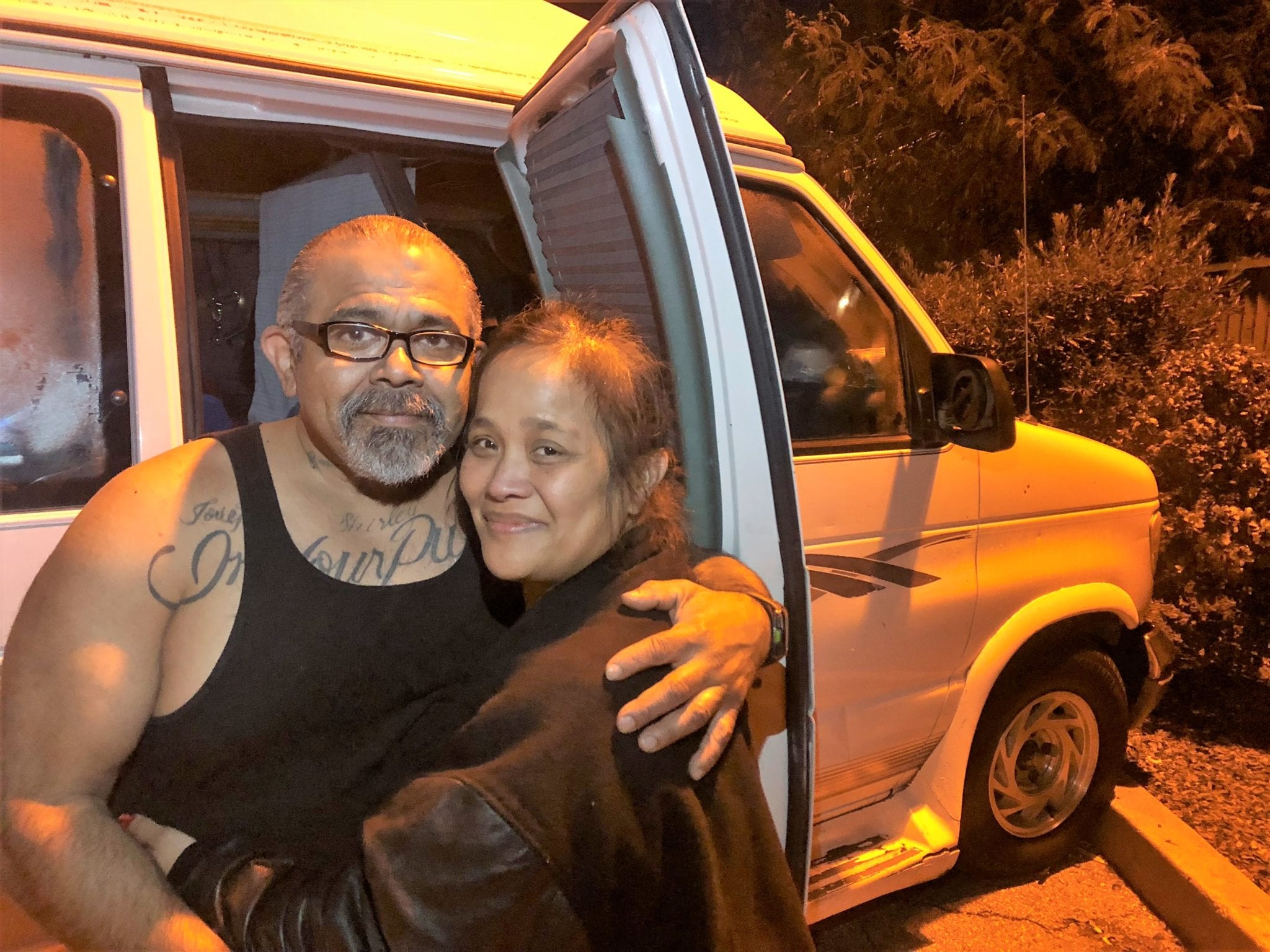The San Jose City Council on Tuesday expanded a safe parking pilot program to two more locations despite deep concerns about the program’s half-million dollar price tag and fierce opposition from residents.
Last November, San Jose launched a safe parking pilot program for those living in their vehicles. LifeMoves, a nonprofit that provides services to the homeless, won a contract to provide security and oversee the program at the Seven Trees Community Center parking lot. But as city leaders discussed expanding the program to Roosevelt and Southside community centers, some residents spoke out against the nonprofit and how much the city was paying for services.
Kathy Mattingly, a social ministries liaison at St. Thomas of Canterbury, complained to the council about the program’s cost. Mattingly assists with some church-run safe parking programs that are operating at no cost.
“Our guests need three things: They need permission to park, they need restroom access and they need garbage pickup,” Mattingly said. “We do more than that and it’s still free. I think it’s muddy to be providing this resource-rich model for safe parking instead of making sure those services are provided to the population that uses them.”
San Jose will pay $400,000 for LifeMoves to operate the two sites through June 30, 2021. The council previously allocated $250,000 for the pilot program to operate at Seven Trees Community Center from November 2018 to June 2019.
Donna Slaughter, who used to be a part of the LifeMoves program at Seven Trees Community Center, said she was disappointed in the services they offered.
“For me, LifeMoves did help on certain things, but I’m just a little bit disappointed,” Slaughter said. “They asked us to do certain things, like find jobs, so we could get into housing and that’s what my husband and I did. They promised us certain things but they didn’t follow through.”

San José Spotlight first interviewed Slaughter and her husband Joe Castro earlier this year while they slept in a cramped van with three kids. They created a makeshift kitchen in the front seat where they cooked breakfast and dinner. At bedtime, the family would squeeze into the back seat to sleep. They never moved into more permanent housing.
Heather Bucy, director for shelter and services for LifeMoves’ Santa Clara County operations, declined to discuss individual cases due to confidentiality requirements, but said the nonprofit is committed to making resources available to those they serve.
“While we cannot dictate to what extent our participants will take advantage of what is offered,” she said, “we work diligently to engage them in and with community resources and services based on their unique and individual family needs.”
Another resident called on the council to independently verify data from contractors, challenging LifeMoves’ claim that it’s served 34 families since November.
“There should be oversight of pilot programs receiving public funds,” Karen Gillette said. “The cost of the program per client served should be considered.”
Councilmember Sylvia Arenas pushed the city to hire contractors that are ‘culturally competent.’
“I want to make sure we’re meeting the needs of our community so they can feel connected,” she said. “We want to make sure the people who are serving us speak like us or look like us.”
Councilmember Sergio Jimenez asked city officials to modify LifeMoves’ contract to increase the 25 car limit at Southside Community Center. He also proposed eliminating a requirement that vehicles must be registered to participate.
“We should appreciate the cost of car insurance and registration may be prohibitive for a person living on the streets and should not preclude them from access to safety,” Jimenez wrote in his proposal.
Jimenez also proposed partnering with groups like Dignity on Wheels to provide onsite shower services at Southside Community Center and to explore adding safe-parking sites in other districts.
The council unanimously approved Jimenez’s and Arenas’ proposals with safe parking expansion, along with a proposal from Councilmember Raul Peralez to reach out to residents living in RVs on St. James Street.
Cannabis equity program
San Jose’s cannabis equity program is finally in the works after councilors voted unanimously to adopt program guidelines. The city had to expedite the process in order to meet the April 1 deadline for grant funding from the state.
“I think this is one of the fun parts of your job when you can actually help people get the American dream and obtain upward mobility,” Sean Kali-rai said.
While there’s more work to do in developing the program, the councilors approved some of the guidelines for applicants. Business owners would have an annual family income of 80 percent or less of the area median income of the county and meet one of the following criteria:
- Has lived in an area for at least four years where at least 51 percent of residents have a household income at or below 80 percent of the county’s area median income.
- Have attended a public school for at least four years in an area where at least 51 percent of the residents have a household income at or below 80 percent of the county’s area median income.
- Was arrested or convicted for a cannabis-related crime.
- Has an immediate family member convicted of a cannabis-related crime.
Councilmember Magdalena Carrasco, Raul Peralez and Pam Foley advocated in a memo to broaden the criteria, which included requirements that the applicant lived or went to school in San Jose for a certain amount of time.
“The policy consequences from the ‘War on Drugs’ did not recognize geographical municipal boundaries,” the councilors’ memo said. “Removing the unnecessary location limitations, allows the program to serve its purpose: an equitable playing field for all.”
Contact Grace Hase at [email protected] or follow @grace_hase on Twitter.



Leave a Reply
You must be logged in to post a comment.